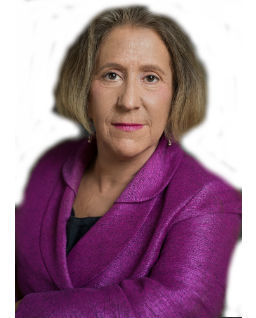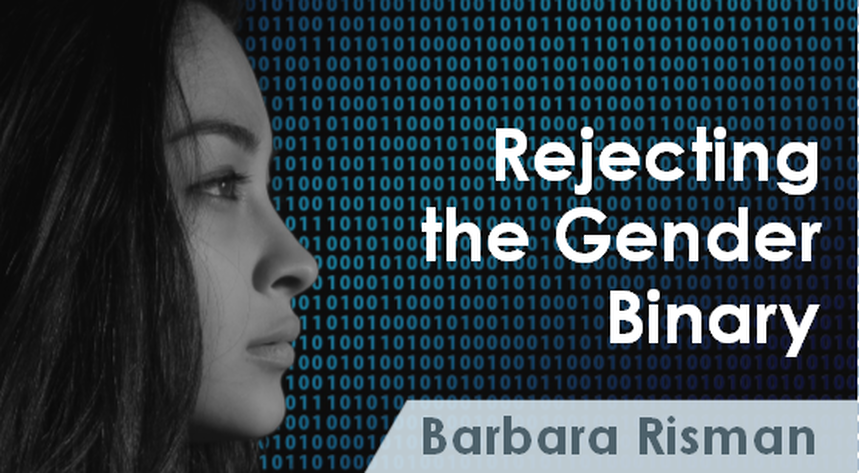|
While sociologists debate whether the gender revolution is stalled (England 2010, Scarborough et al. 2019), the very meaning of gender is fundamentally being challenged. In several states, people can now retroactively change the sex category on their birth certificate to reflect their current gender identity or choose to opt out of either category on their driver’s licenses. Many college classes now begin with each person declaring their pronoun. New laws and pronouns reflect a newly emerging identity, genderqueer or non-binary, positioned beyond the gender binary. Cultural practices and social policy have far outpaced social science research, although research is now catching up (Darwin, Barbee and Schrock, Garrison). What we do know is that young people are leading the way to wherever it is the gender revolution is now headed. Estimates of how many people identify as non-binary are wildly inconsistent, from less than 1 percent of young people in the US (Meerwijk and Sevelius, 2017) to reports that 27% of California youth believe that others view them as gender non-conforming (Williams Institute, 2017). Prevalence rates are challenging because some researchers simply collapse those who reject categories into the transgender umbrella, using the combined category transgender/gender-non-conforming while others use discrete categories. . While there is no accepted estimate of the number of people who reject gender categories, one forthcoming study (https://psmag.com/ideas/gen-z-the-future-is-non-binary) suggests that the numbers are exponentially increasing among teenagers, primarily among those raised as girls. My research adds to a small but growing literature on non-binary young people. What we know from Darwin’s (2017) virtual ethnography of a Reddit social media site for genderqueer users is that there is little consensus even among those who use similar identity terms as to what they mean, whether or not a non-binary identity is also being transgender one, or even how to “do non-binary.” Other research by Barbee and Schrock (2019) suggests that rejection of gendered pronouns and changing gendered bodily presentation are common attributes of college-aged non-binary identified Americans, at least among those who are white middle class college students. My research team is beginning to explore how non-binary people understand and operate within our contemporary gender structure. How do young people who identify outside the gender binary come to this identity? How do they experience their gender as identity? How do they navigate interactional gendered expectations? And how do they deal with the binary cultural logics that organize every social institution from school to work, to voluntary organizations? Will the existence of non-binary identities disrupt the gender structure itself or will new categories simply turn a binary into a set of multiple categories, leaving intact gender stratification? We are currently collecting data. At this point we have 12 interviews collected in 2012-13 and 16 interviews in 2017. The first wave of interviews was completed for my recent book, Where the Millennials Will Take Us: A New Generation Wrestles with the Gender Structure. In 116 interviews for that book, we had 12 people who identified outside the binary. In the fall of 2017 our team began collecting data again, now advertising specifically for those who identify outside the binary, as neither women or man. This blog reports patterns now becoming apparent in our on-going research and the difference between the two data collection waves. We noticed patterns that differed from interviews completed in 2012-13 and those only five years later. While our sample size is far too small to be confident, here I share some exploratory analysis. In 2012-13, nearly all the respondents were very political, understanding their own rejection of gender at the individual level, including bodily presentation, as part of a radical project to overcome gender oppression. In the 2017 data, only five years later, many still spoke with strong political motivations, but not all. As the idea of the possibility of escaping gender categories has become more widespread, some young people we talked to recently had fewer political goals and were primarily motivated to escape their assigned gender category because the normative gendered expectations felt oppressive. Another very clear change over time was how “out” respondents were with their identity and that showed in their use of non-gendered pronouns. In the 2012-13 interviews, very few respondents had considered non-gendered pronouns, and none used them regularly outside of a support group, or a very close circle of friends. In the interviews just five years later, respondents were far more likely to be “out” in a variety of social contexts and to bring up the subject of pronouns by themselves in an interview. By 2017, almost half of the respondents felt strongly that gender neutral pronouns were important and several others didn’t care one way or another, using them sometimes without bothering to correct people that mis-gendered them. For some, being able to name their pronoun felt empowering. Another difference between the interviews in 2012-13 and the later ones in 2017 was that in the more recent interviews, we heard more about the existence and comfort of queer spaces. One respondent told us that “there are a lot of really strong and amazing efforts taking place, led mostly by women, who are like intentionally making spaces that are inclusive and safe.” Others talked about less formal queer community based on friendship groups with shared identities. In the earlier interviews, our non-binary respondents often had romantic partners who were uncomfortable with their gender non-conformity, but in the 2017 interviews several respondents indicated that having a partner who explored identities with them was a source of support. In both waves of interviews, non-binary respondents identified with newly emerging language of genderqueer or between the binary. Many of the people we interviewed considered gender a journey and left open the possibility of identity changes in the future. They reject the category of woman or man, and most, at least those raised as girls, do so by refusing to “do gender” with their bodies or clothing choice. Among those we have spoken to more recently, some don’t make a connection between their gender identity and the need to display that identity with their body, and so the need to name their pronoun is all the more important. At both waves, all the respondents were proud to own androgynous personalities and reject limits on self-expression that gendered expectations impose. This is a very new area of research, and I am hoping that those of you reading this blog who also do such research will contact me, If there are enough of us, it would be exciting to organize a small working conference as a way to stimulate more research on young people and emerging adults who reject the gender binary.  Barbara J. Risman (Ph.D., University of Washington) is College of Arts & Sciences Distinguished Professor of Sociology at the University of Illinois at Chicago. She is the editor of Gender & Society. Her most recent books are Where the Millennials Will Take Us: A New Generation Wrestles with the Gender Structure (Oxford University Press, 2018) and the co-edited volume (with Carissa Froyum Roise and William Scarborough) the Handbook on the Sociology of Gender (Springer, 2018). She is also author and editor of several other books, and over two dozen articles published in such journals as American Sociological Review, Gender & Society, and Journal of Marriage and Family. She has been editor of Contemporary Sociology and serves on the board of directors of the Council on Contemporary Families. This year she serves as the Distinguished Lecturer for the Southern Sociological Society. She has received a number of honors and awards, including the Public Understanding of Sociology Award from the American Sociological Association in 2011 and the Katherine Jocher Belle Boone Award from the Southern Sociological Society in 2005. She was named Feminist Lecturer by the Sociologists for Women in Society in 2003. Comments are closed.
|
ContactSection on Children and Youth Categories
All
Archives
May 2020
.
|

